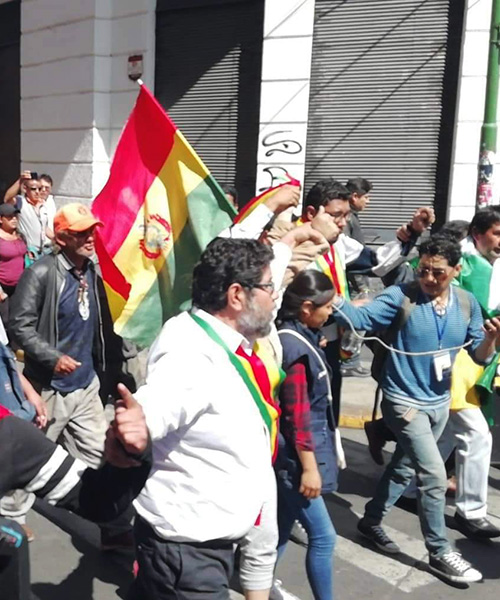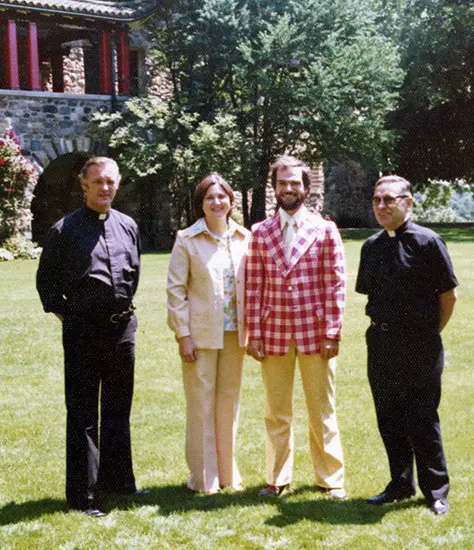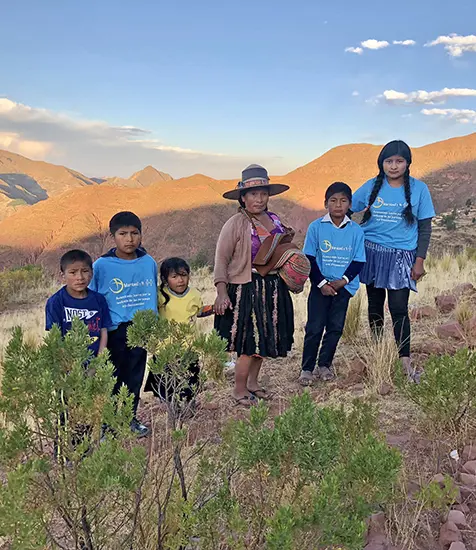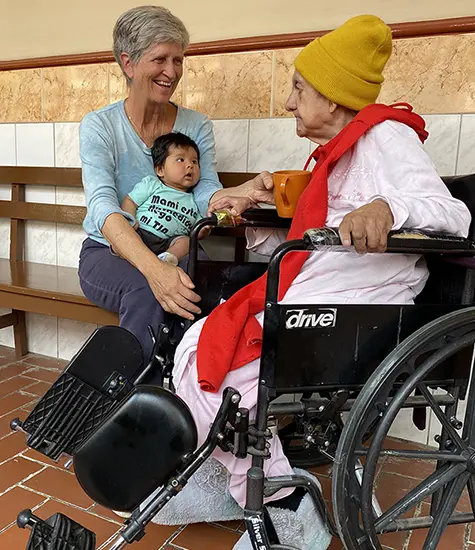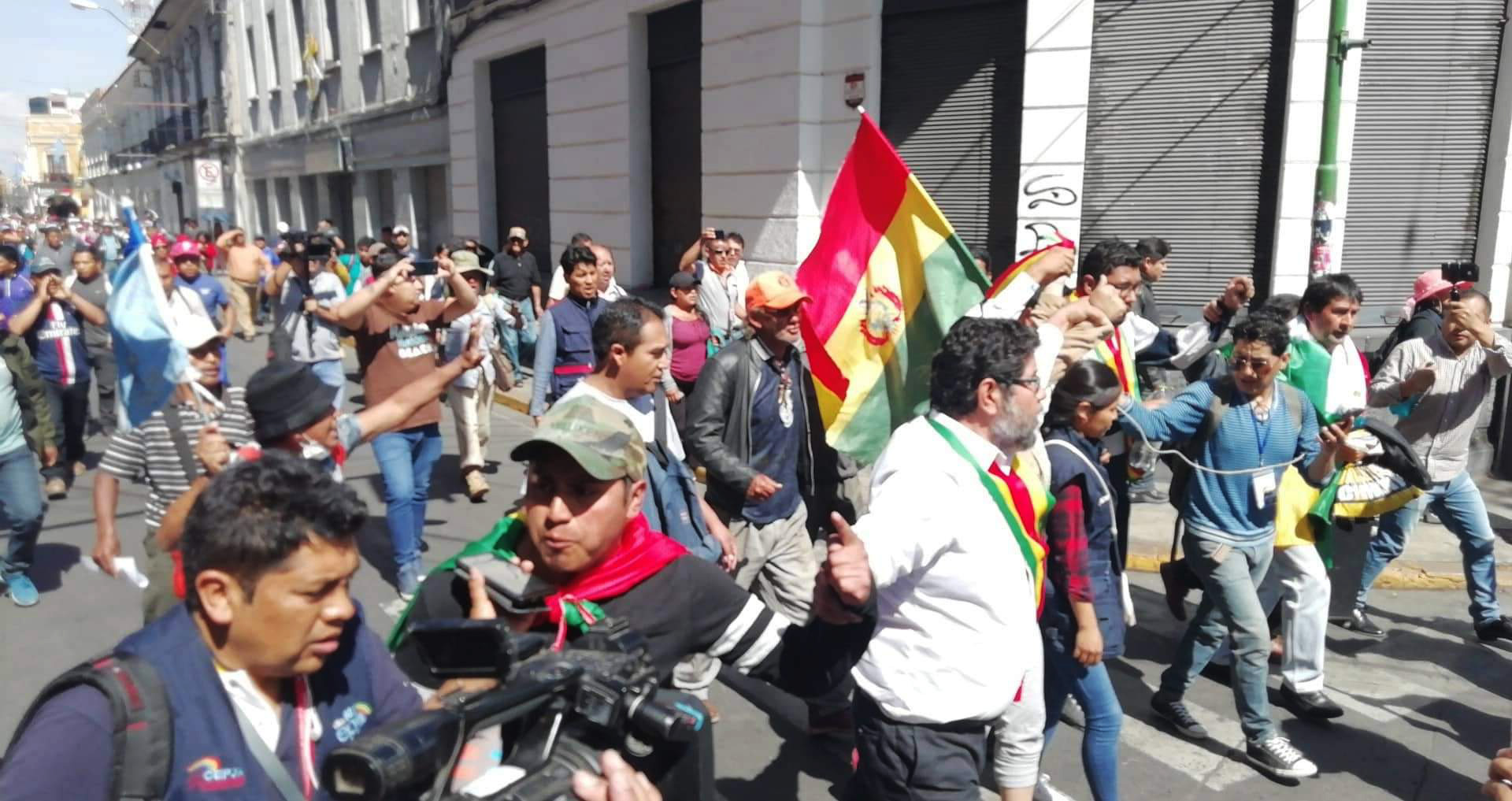
Demonstrators heading toward St. Francis Church near Cochabamba’s Plaza Principal on Oct. 24.
‘No hay paso; esta bloqueado!’
Remember the phrase “God draws straight with crooked lines?” I’ve never been a fan of it, because when I’ve typically heard it said to me, it’s from the mouth of a (well-intending) friend who is trying to make me feel better that things aren’t going as planned. If someone were to say that to me now to describe the current crisis in Bolivia, they might really tick me off—and receive a free lecture.
On Oct. 20, Bolivia held its presidential elections. With a field of nine candidates on the ballot, Bolivians took to the polls that Sunday in streets mostly free of traffic, and large commercial businesses closed—all so that Bolivians can go to the polls without being late for/having to work. At 7:40 pm that night, with 83 percent of the vote counted, results showed that a runoff would be necessary between incumbent Evo Morales of the Movimiento a Socialismo (Movement Toward Socialism, then at 45 percent) and runner-up Carlos Mesa of the Comunidad Ciudadana (Citizen Community, then at 38 percent) because the candidate with the most votes did not have 50 percent of the vote and less than 10 percent separated him from the closest challenger.
But these were the last results posted that evening; a stop in reporting which still remains a mystery. The next night, Morales claimed victory with 46.83 percent over Mesa’s 36.7 percent; a 10.12 percent difference, juuuust enough to avoid the runoff required under law when the difference is less than 10 percent. This was claimed statistically unlikely by election observers dispatched by the Organization of American States.
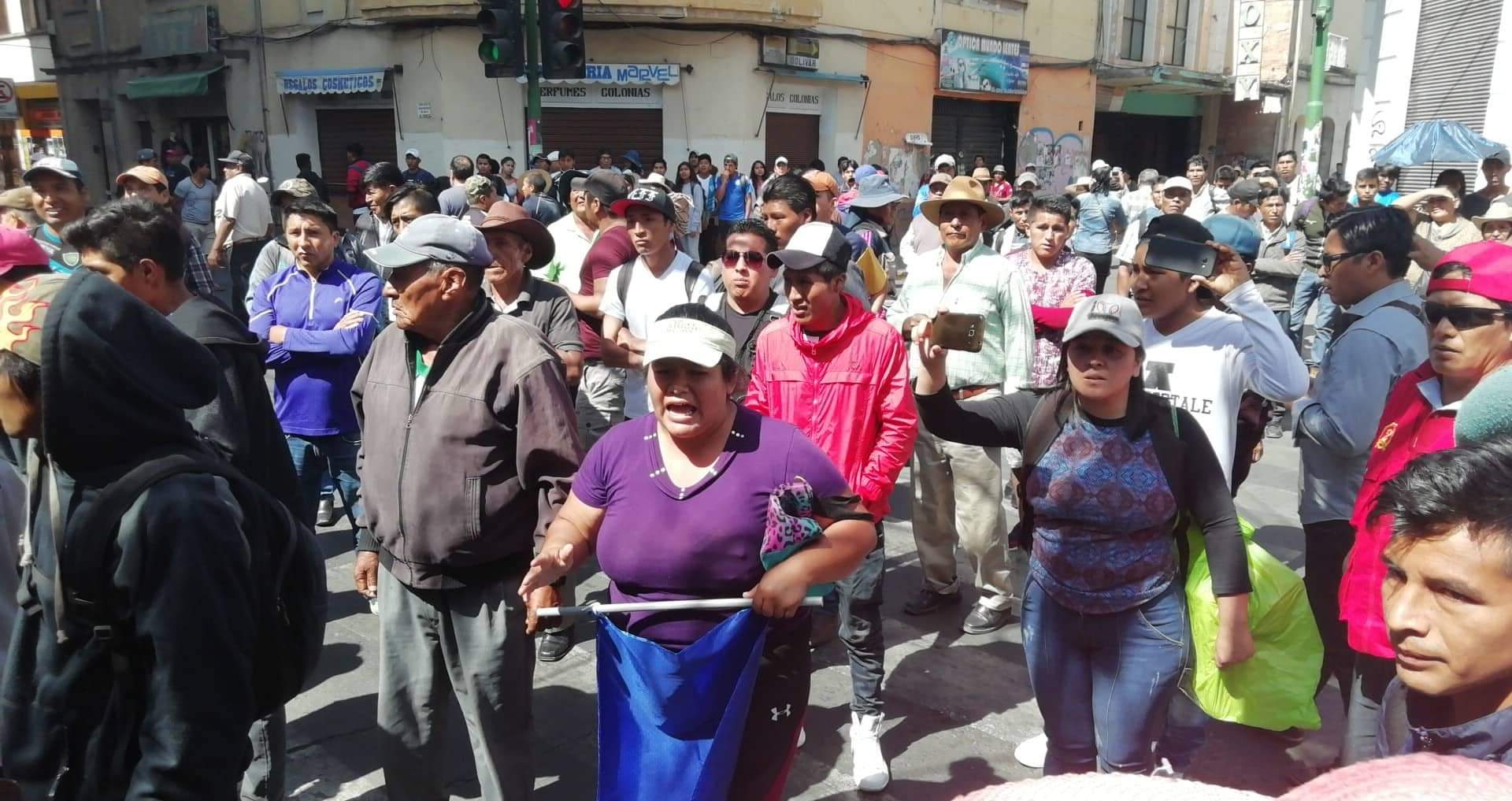
Demonstrators in Cochabamba on Oct. 24
Tuesday, October 22, began as normal. I went to my ministry at Puente de Solidaridad and repeated a running joke I have with the Bolivians who work there: “Por cualquier cosa va a pasar, lo siento, por todo es falta de imperialismo!” (For whatever is going to happen, I’m sorry, because everything is imperialism’s fault!) I continued working on an inventory of supplies brought from the United States by a recent mission group as my two Bolivian co-workers showed me electoral results online that clearly showed discrepancies in the vote tallies of the country’s own tribunal. Throughout the morning, people were getting text messages about roads being blocked off by people angry at the clearly flawed process.
At 11 a.m. people started leaving the office to pick up kids from school, to meet loved ones, and to simply get home before the entire city was shut down. I walked home through streets where citizens had placed large rocks, piles of dirt, furniture, and were pulling police-style plastic tape across roads to close them. By 3 p.m., the Plaza de las Banderas, a distance of a block or so from my house, was filling with thousands of people.
Since then, most of Cochabamba city has been completely paralyzed. I haven’t been able to work in my ministries, and we are very much living in a day-by-day, wait-and-see situation.
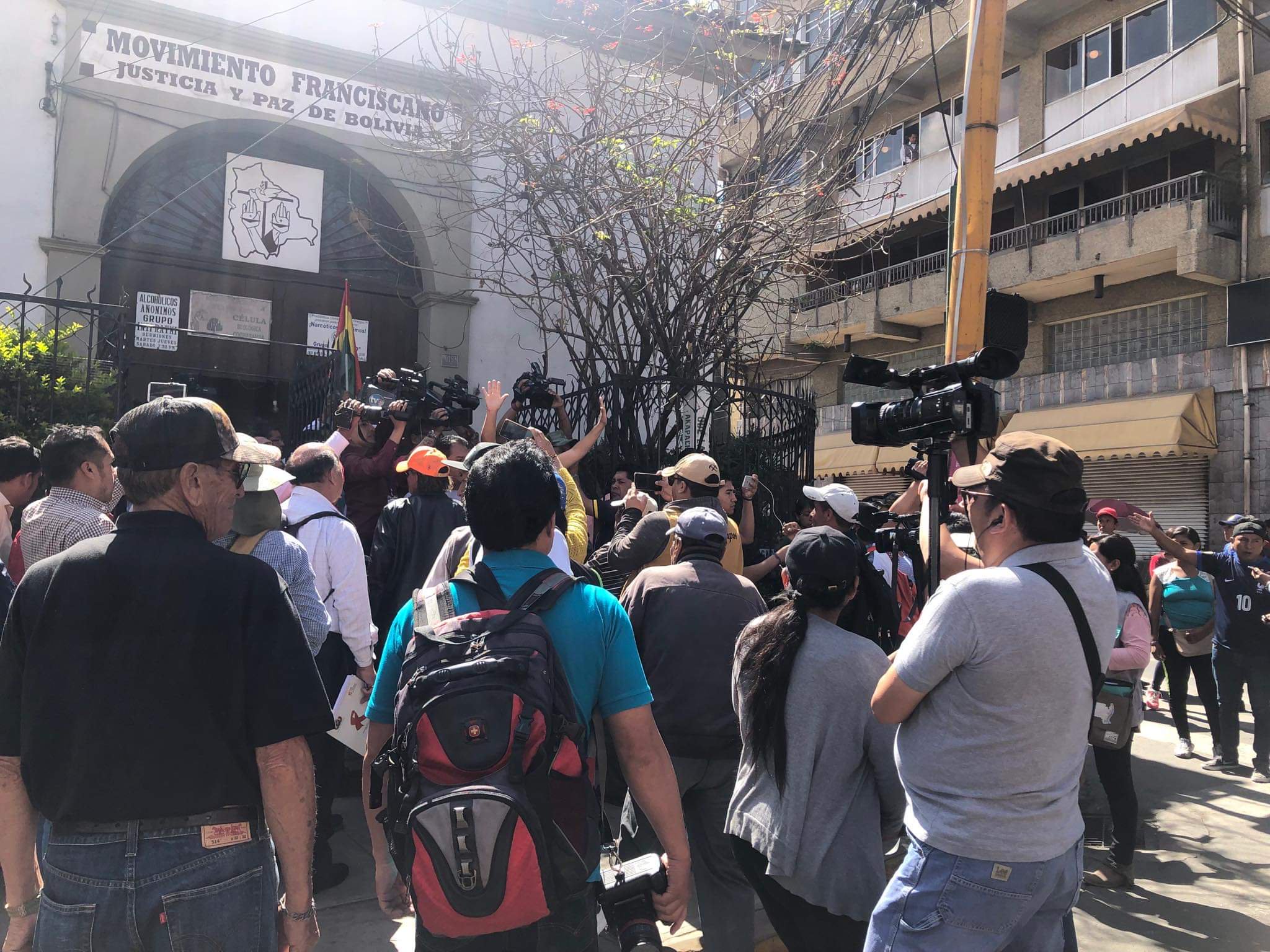
Demonstrators at St. Francis Church near Plaza Principal, Cochabamba, Oct. 24.
One of those wait-and-see moments that resulted in action was the Wednesday after the elections (Oct. 23). The next day, Morales’ MAS political party were to bus supporters into the city of Cochabamba for a massive rally/counterprotest. They are said to be paid Bs 100-200 (about US$20-28) by the party to attend these mass rallies; or face a multa (fine) if they don’t. (Note: I cannot confirm this other than through hearsay from missioners who know some of these neighborhoods better than I.)
I live in a house with six other missioners and volunteers near the city center. We are located between two areas where protests of all types often gather—the Plaza de Las Banderas and Plaza 14 de Septiembre (or Plaza Principal, main plaza). On that day, the MASistas were gathering at the main plaza, while anti-government supporters tended to gather at the nearby Banderas.
Not wanting to be surrounded by a possible confrontation (even if I was safe inside of my house), I opted to sleep at the Maryknoll Fathers and Brothers’ residence that night and stay through the next day. What should have been a 10-minute taxi ride there took about an hour and 15 minutes because the taxi driver had to work his way around blockaded streets! From this experience comes the intro into this post—our taxi made crooked and back-tracked lines throughout Zona Norte in Cochabamba, but after all this—and a bilingual decade of the rosary between me and an Irish priest—I eventually got to where I needed to be.
Photos by Gerardo Bravo (via Twitter, @LosTiemposBol)

